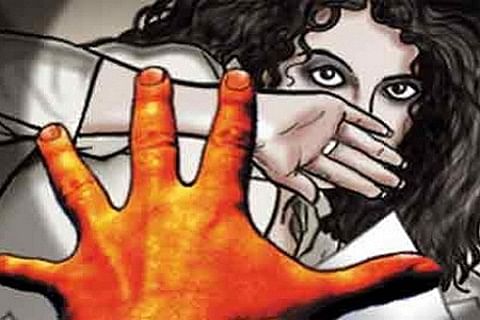The Supreme Court on Thursday directed setting up of a centrally-funded designated court in each district having more than 100 FIRs under the Protection of Children from Sexual Offences (POCSO) Act to deal exclusively with cases of sexual offences against children.
“We would expect our above stated directions to beimplemented and exclusively designated courts to try offences under the POCSOAct, in terms of the above directions, to start functioning within 60 days fromthe date of the present order,” a bench headed by Chief JusticeRanjanGogoi said, while asking the Centre and states to implement itsdirection.
In a slew of directions, the apex court also said that ashort clip, intended to spread awareness about prevention of child abuse andprosecution of crimes against children, be screened in every movie hall andtransmitted by various television channels at regular intervals.
The top court directed that the special court be funded bythe Centre and take care of appointment of presiding officer, support persons,special public prosecutors, court staff and infrastructure, including creationof child-friendly environment and vulnerable witness court rooms.
The court, which has on its own taken up the issue ofalarming rise in the number of rape cases against children, took note of areport which said that one of the major causes of hinderance in completingtimely trial of POCSO cases was delay in receiving reports from forensicscience laboratory (FSL).
The top court perused the report prepared by senior advocateV Giri, assisting it as an amicus curiae in the case, and said the suggestionthat there should be designated FSL in every district of the country for thepurposes of POCSO Act can be considered at a later stage. “For thepresent, we direct the directors of the state forensic science laboratories andthe concerned authority in the state government to ensure that the existing andavailable forensic science laboratories in each state will function in aneffective manner insofar as analysis etc of the samples collected under thePOCSO Act are concerned and reports of such analysis be sent promptly andwithout any delay,” the bench, also comprising Justices Deepak Gupta andAniruddha Bose, said.
The bench directed the chief secretaries of all the statesand union territories to ensure that its direction is complied with”forthwith”.
“In each district of the country, if there are morethan 100 cases under the POCSO Act, an exclusive/designated special court willbe set up, which will try no other offence except those under the POCSOAct,” the bench said.
“Such courts will be set up under a central scheme andwill be funded by the central government, which fund will not only take care ofthe appointment of the presiding officer, but also the appointments of supportpersons, special public prosecutors, court staff and infrastructure, includingcreation of child-friendly environment and vulnerable witness court rooms,etc,” it said.
The apex court said that while drawing up the panel ofsupport persons in each district, which should not exceed a reasonable numberkeeping in mind the total number of cases, care should be taken to appointpeople who are dedicated to the cause.
It said that apart from academic qualifications, such peopleshould be oriented towards child rights and sensitive to the needs of a childand otherwise be child-friendly.
“The same standards would also apply in the matter ofappointment of special public prosecutors,” it said.
The bench accepted the suggestion of the amicus regardingscreening of short clips in movie halls and directed the Ministry of Women andChild Development to implement it through its agencies.
The bench noted the submission of the amicus who said,”A short clip intended to spread an awareness of the subject in general,namely, prevention of child abuse and prosecution of crimes against children,should necessarily be screened in every movie hall and could also betransmitted by various television channels at regular intervals.”
“A child helpline number should also be displayed notonly in such clip but also at various other prominent places, in schools andother public places,” the amicus said.
The bench passed the order after perusing the reports filedby the amicus and apex court registrar Surinder S Rathi, who was entrusted withthe work of collating and collecting data regarding number of POCSO cases.
“Both the reports contain several suggestions inrespect of the core of the issue, namely, to ensure timely completion ofinvestigations and consequential trials in the offences under Protection ofChildren from Sexual Offences Act,” it noted.
“While, both the amicus curiae and Rathi, in theirreports, have suggested that further time should be granted for collection ofdata in terms of the earlier order of this court, we are inclined to take adifferent view of the matter at this stage,” the bench said.The bench, which posted the matter for furtherhearing on September 26, asked Solicitor General Tushar Mehta to apprise itabout the progress made in respect of the implementation of its directionsafter four weeks.






